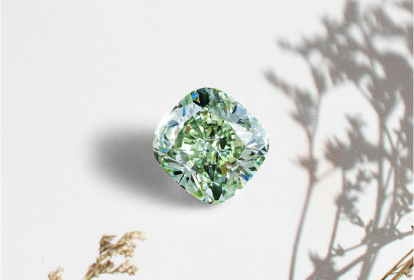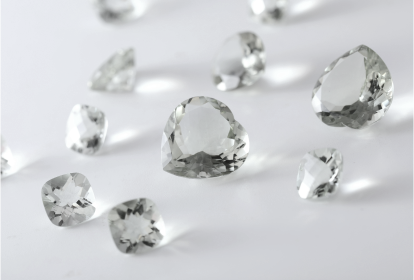
DIFFERENCE BETWEEN LAB AND NATURAL DIAMOND: UNVEILING THE ORIGINS, CHARACTERISTICS, AND VALUE
As environmental concerns become increasingly important to consumers, many are looking for sustainable and ethical alternatives to traditional products
Discover comprehensive guides and articles on diamond care, types, and sustainable practices.
As environmental concerns become increasingly important to consumers, many are looking for sustainable and ethical alternatives to traditional products. Lab-grown diamonds have emerged as a popular choice for those who want to enjoy the beauty and elegance of diamonds while minimizing their environmental footprint. In this blog post, we’ll explore the ecological impact of lab-grown diamonds and why they are considered a sustainable choice.
Natural diamond mining is a resource-intensive process that involves significant land disruption. Large areas must be excavated to access diamond deposits, leading to deforestation and habitat destruction.
Diamond mining requires vast amounts of water for processing the ore and separating diamonds from other minerals. This can strain local water resources and affect surrounding ecosystems.
The extraction and processing of natural diamonds consume large amounts of energy, often relying on fossil fuels. This contributes to greenhouse gas emissions and climate change.
Mining generates substantial waste, including rock and soil displaced during the extraction process. Additionally, chemicals used in mining can contaminate soil and water sources, posing risks to local communities and wildlife.


Lab-grown diamonds are created in controlled laboratory environments, eliminating the need for large-scale mining operations. This significantly reduces land disruption and habitat destruction.
The production of lab-grown diamonds requires significantly less water compared to natural diamond mining. This helps conserve valuable water resources and reduces the environmental impact on local ecosystems.
Although lab-grown diamonds do require energy for their creation, advancements in technology have made the process more energy-efficient. Additionally, many producers are turning to renewable energy sources, such as solar and wind power, to further reduce their carbon footprint.
The controlled environment of diamond laboratories allows for more efficient use of materials, resulting in minimal waste. Any byproducts of the diamond-growing process can often be recycled or repurposed, further reducing environmental impact.
As consumers become more aware of the environmental and ethical implications of their purchases, the demand for lab-grown diamonds is expected to rise. This shift in consumer behavior is encouraging more jewelers to offer sustainable options and invest in eco-friendly practices.
Ongoing advancements in diamond-growing technology continue to improve the efficiency and sustainability of lab-grown diamonds. Innovations such as improved energy use and waste management are making lab-grown diamonds an even more attractive option for environmentally conscious consumers.
Lab-grown diamonds offer a sustainable and ethical alternative to natural diamonds, with a significantly lower environmental impact. By choosing lab-grown diamonds, you can enjoy the timeless beauty and elegance of diamonds while supporting environmentally friendly practices. At BZ Diamond, we are committed to providing high-quality lab-grown diamonds that align with your values and contribute to a more sustainable future.

As environmental concerns become increasingly important to consumers, many are looking for sustainable and ethical alternatives to traditional products

A Guide to Selecting Lab-Grown Diamonds that Align with Your Values and Last a Lifetime

Discover why lab-grown diamonds are a sustainable and cost-effective choice, and how they compare to natural diamonds in terms of beauty and value.